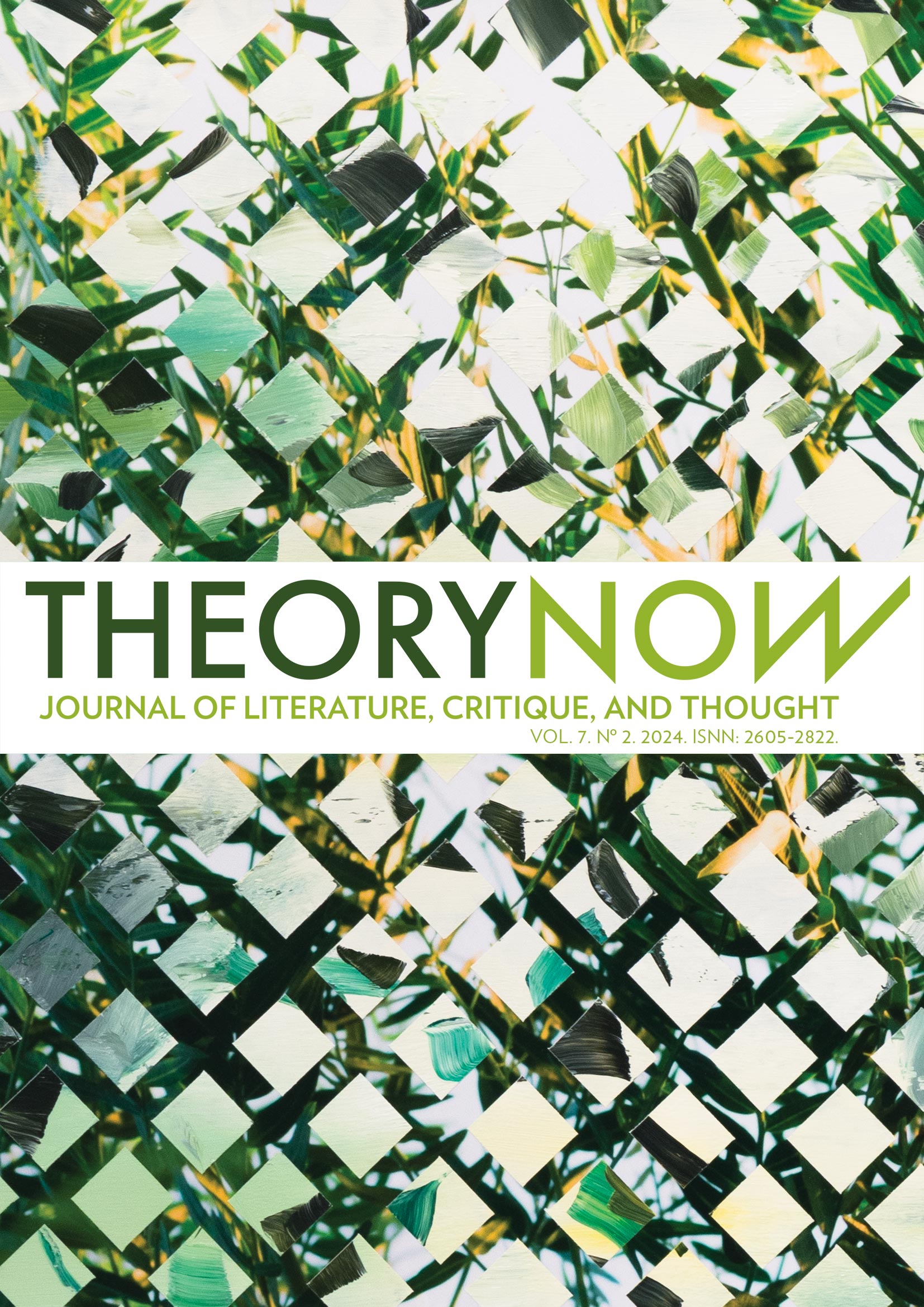Turning into a Potted Plant: A Plant Studies' Approach to Han Kang's Short Story "The Fruit of My Woman"
DOI:
https://doi.org/10.30827/tn.v7i2.29560Keywords:
Plant studies, Plant mobility, Intelligence, Communication, Anthropomorphism, Conception of the human, Han KangAbstract
Plant studies, a recent branch of cultural studies, is taking a new look at the ontological status of plants and, implicitly and explicitly, redefining the status of the human in the larger web of life. Scientists have discovered that plants are not merely passive objects, but active agents with amazing capabilities: they are mobile and intentional, capable to make intelligent choices, to communicate with each other and with their environment, they are a "who and not only a what" (Michael Marder). This essay takes a look at these major claims of plant studies and argues that using anthropomorphic terms for the newly discovered capabilities of plants is a philosophical choice with serious consequences for our understanding not only of the vegetal world, but also of our position within it. It allows us to step beyond our hierarchical and zoocentric attitude and understand ourselves as part of the larger web of relations. The essay then demonstrates the role of plant studies for literary studies by interpreting Han Kang's short story "The Fruit of My Woman."
Downloads
References
Bose, Ananya. "Becoming Vegetarian: Reading Han Kang's the vegetarian and the fruit of my woman". International Journal of Applied Research, 3 (7), 2017, pp. 63-66. https://www.allresearchjournal.com/archives/2017/vol3issue7/PartA/7-2-55-393.pdf
Derrida, Jacques. The Animal that Therefore I Am, edited by Marie-Louise Mallet, translated by David Wills, New York, Fordham University Press, 2008.
Finck, Shannon. "Clenched and Empty Fists: Trauma and Resistance Ethics in Han Kang's Fiction". Humanities, vol. 11, no. 6, 2022. https://www.tandfonline.com/doi/full/10.1080/00111619.2020.1713716
Gagliano, Monica; John C. Ryan; and Patrícia Vieira. "Introduction". The Language of Plants: Science, Philosophy, Literature, edited by Monica Gagliano; John C. Ryan; and Patrícia Vieira, Minneapolis, University of Minnesota Press, 2017, pp. vii-xxxiii.
Gibson, Prudence. The Plant Contract: Art’s Return to Vegetal Life. Leiden, Brill, 2018.
Hall, Matthew. Plants as Persons: A Philosophical Botany. Albany, SUNY, 2011.
Haraway, Donna. The Companion Species Manifesto: Dogs, People, and Significant Otherness. Chicago, Prickly Paradigm Press, 2003.
____. When Species Meet. Minneapolis, University of Minnesota Press, 2008.
Kang, Han. The Vegetarian. London, Portobello Books, 2015.
____. "The Fruit of My Woman". Granta Magazine, 19 Nov 2019, pp. 1-14. https://granta.com/the-fruit-of-my-woman/ 19 Nov 2019.
Kim, Mijeong. "A Deleuzian Reading of 'Becoming-plant' in Han Kang's Writing: 'The Fruit of My Woman' and The Vegetarian", pp. 327-340. https://www.mdpi.com/2076-0787/11/6/149 04 Jun 2024
Klein, Stefan. "Der IQ der Sonnenblume". DIE ZEIT, 22 Mar 2018, pp. 19-25.
Laist, Randy, editor. Plants and Literature: Essays in Critical Plant Studies. Netherlands, Editions Rodopi, 2013.
Marder, Michael. "If Peas Can Talk Should We Eat Them?". The Stone, 28 Apr 2012, np.
____. Plant-Thinking: A Philosophy of Vegetal Life. New York, Columbia University Press, 2013.
McGowan, Kat. "The Secret Language of Plants". Quanta Magazine, 16 Dec 2013, https://www.quantamagazine.org/the-secret-language-of-plants-20131216/ 04 Jun 2024
Nagel, Thomas. “What Is It Like to Be a Bat?” The Philosophical Review, vol. 83, no. 4, 1974, pp. 435-45.
Patrick, Bethann. "Han Kang on Violence, Beauty, and the (Im)possibility of Innocence". Literary Hub, 12 February 2016, https://lithub.com/han-kang-on-violence-beauty-and-the-impossibility-of-innocence/ 22 Jun 2023.
Pollan, Michael. The Botany of Desire: A Plant's-Eye View of the World. New York, Random House, 2001.
____. "The Intelligent Plant". The New Yorker, 23 & 30 Dec 2013, pp. 92-105.
Regan, Tom. The Case for Animal Rights. 1983. Berkeley, University of California Press, 2004.
Ryan, John Charles. "Passive Flora? Reconsidering Nature's Agency through Human-Plant Studies (HPS)". Societies, 14 Aug 2012, np.
Sandilands, Cate. "'It Was the Flowers on His Body': Discomfort, Desire, and Vegetability in The Vegetarian”. Sex Ecologies, edited by Stefanie Hessler and Katja Aglert, Cambridge, MIT Press, 2021, p. 2.
Singer, Peter. Animal Liberation. London, Bodley Head, 2015.
Smith, Deborah. "Translator's Note". Granta Magazine, 19 Nov 2019, pp. 13-14, https://granta.com/the-fruit-of-my-woman/ 19 Nov 2019.
Stark, Hannah. "Deleuze and Critical Plant Studies". Deleuze and the Non/Human, edited by Jon Roffe and Hannah Stark, New York, Palgrave Macmillan, 2015, pp. 180-196.
Taylor, Luke. "Doubts over the Wood Wide Web". New Scientist, 18 Feb 2023, p. 10.
Tompkin, Peter and Christopher Bird. The Secret Life of Plants. New York, Harper & Row, 1973.
Wohlleben, Peter. The Hidden Life of Trees: What They Feel, How They Communicate—Discoveries from A Secret World. Vancouver, Greystone Books, 2016.
Published
How to Cite
Issue
Section
License
Theory Now. Journal of Literature, Critique, and Thought is an immediate open-access publication which is available at no cost for readers and authors alike. Authors are not charged any kind of fee for the editorial processing of their articles. Reading, downloading, copying, distributing, printing, searching, linking or reusing all published articles for non-commercial uses is allowed on the condition of citing the author, the journal and the editing body. All intellectual material published in this journal is protected under a Creative Commons Attribution-NonCommercial 3.0 Spain license.
Dissemination of the articles in social (Facebook, Twitter, Linkedin, etc.) and scientific networks (ResearchGate, Academia.edu, etc.), public repositories at universities and other institutions, blogs, personal or institutional websites, Google Scholar, ORCID, ResearchID, ScopusID, etc. is strongly encouraged. In all cases, the intellectual property of the articles and any possible monetary profits derived from them belong exclusively to the authors.


















